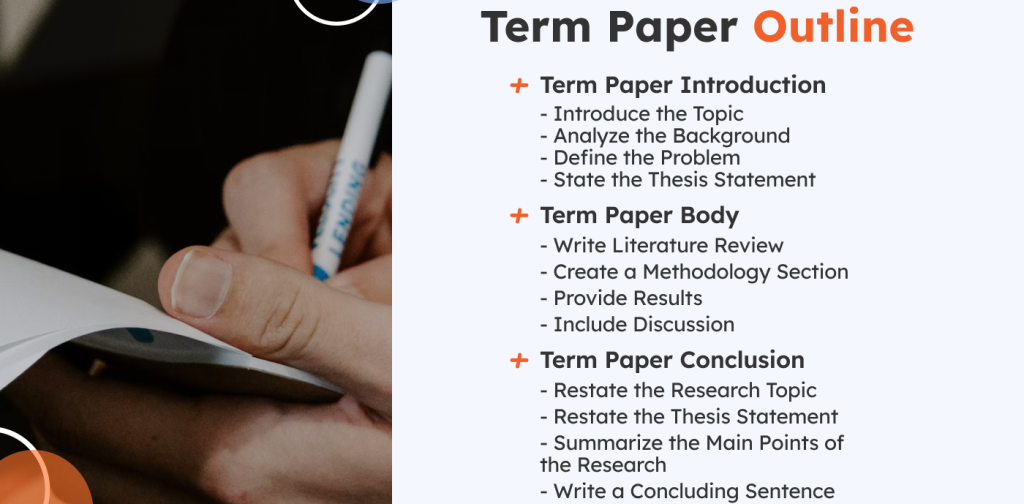
Table of Contents
The journey through nursing school is rigorous, demanding not only clinical competence but also academic excellence. A cornerstone of this academic requirement is the Nursing Term Paper. This seemingly daunting task is, in reality, an invaluable opportunity for students to delve deep into specific areas of nursing, hone their critical thinking skills, and contribute to the body of nursing knowledge. A well-crafted nursing term paper demonstrates a student’s ability to research, synthesize information, and present findings in a coherent and professional manner.
This guide demystifies the process of writing a nursing term paper, offering practical strategies and insights to help students navigate this academic challenge and achieve success. Mastering the art of the nursing term paper is a skill that will serve you well, not just in your studies, but throughout your professional nursing career.
Understanding the Purpose of a Nursing Term Paper
Before diving into the “how-to,” it’s crucial to understand the “why.” Why are nursing students so often tasked with writing a nursing term paper? The reasons are multifaceted:
- Deepening Knowledge: A nursing term paper compels students to explore a topic far more profoundly than a typical lecture or textbook reading might allow. This focused research helps solidify understanding of complex nursing concepts.
- Developing Critical Thinking: The process involves more than just summarizing information. Students must analyze, evaluate, and synthesize data from various sources, fostering critical thinking essential for evidence-based practice. Writing a nursing term paper is an exercise in intellectual rigor.
- Enhancing Research Skills: Successfully completing a nursing term paper requires students to become proficient in locating, evaluating, and utilizing scholarly resources, a core competency for any healthcare professional.
- Improving Written Communication: Clear, concise, and professional writing is vital in nursing for patient charting, interdisciplinary communication, and even policy development. The nursing term paper provides a platform to practice and refine these skills.
- Preparation for Advanced Practice: For those considering graduate studies or roles in research or education, the skills developed in writing a nursing term paper are foundational.

The nursing term paper is not merely an academic hurdle; it’s a significant developmental tool for aspiring nurses.
Pre-Writing – Laying the Foundation for Your Term Paper
Success in writing a nursing term paper begins long before the first word is typed. Careful preparation is key.
Deconstructing the Assignment
Your instructor will provide guidelines for your nursing term paper. Do not skim these. Instead, dissect them carefully:
- Topic Constraints: Are you assigned a topic, given a list, or free to choose?
- Length Requirements: Word count or page count.
- Formatting Style: APA is most common in nursing. Note the specific edition required.
- Source Requirements: Number and type of sources (e.g., peer-reviewed journals, primary sources).
- Due Date: Mark this prominently and create a timeline.
- Rubric: If provided, the rubric is your roadmap to a good grade. It tells you exactly how your nursing term paper will be evaluated.
Clarify any ambiguities with your instructor immediately. Understanding the expectations for your nursing term paper is the first step towards meeting them.
Selecting a Compelling Topic
If you have the freedom to choose, select a topic that genuinely interests you and is relevant to contemporary nursing practice. Consider:
- Personal Interest: A topic you’re passionate about will make the research and writing process for your nursing term paper more engaging.
- Relevance: Choose a topic that addresses current issues, challenges, or advancements in nursing.
- Scope: Ensure the topic is narrow enough to be covered adequately within the word limit but broad enough to find sufficient research. For example, instead of “Diabetes,” consider “The Impact of Culturally Tailored Education Programs on Self-Management in Type 2 Diabetic Patients.”
- Availability of Literature: Do a preliminary search to ensure there are enough scholarly resources available.
Examples of Compelling Topics for Nursing Papers in 2025
Nursing students are actively seeking compelling and forward-thinking topics. Crafting an impactful term paper requires exploring subjects that reflect current healthcare challenges and anticipate future industry trends. Here are three top contenders for your 2025 research:
1. AI and Robotics: Revolutionizing Patient Care
The rapid integration of technology in healthcare presents a fascinating, evolving area for a nursing term paper.
- Ethical dimensions of AI in diagnostics and personalized treatment plans.
- Role of robotics in enhancing patient mobility and assisting daily care activities.
- Transformation of nursing roles and responsibilities with increased AI collaboration.

2. Addressing Nurse Burnout and Championing Mental Well-being
This remains a critically important, relevant subject for any nursing term paper, given sustained pressures in healthcare.
- Evidence-based strategies against compassion fatigue, moral distress, and burnout.
- Impact of chronic staffing shortages and workload on nurses’ mental health.
- Effectiveness of organizational support, peer support, and resilience-building programs.
3. Climate Change: Public Health Impacts & Expanding Nursing Roles
This increasingly urgent global issue provides novel and significant research avenues.
- Nursing leadership in climate disaster preparedness, response, and community resilience.
- Health impacts of environmental changes (extreme heat, air quality, diseases) on vulnerable populations.
- Nurses advocating for sustainable healthcare and influencing environmental health policy.
These topics promise a thought-provoking academic contribution.
Your chosen topic will be the heart of your nursing term paper, so choose wisely. A well-defined topic makes the entire term paper writing process smoother.
Developing a Strong Thesis Statement
The thesis statement is the central argument or main point of your nursing term paper. It should be clear, concise, arguable, and provide a roadmap for your paper.
- Example: “Implementing mindfulness-based stress reduction techniques among emergency room nurses significantly decreases burnout rates and improves patient care quality by enhancing focus and emotional regulation.”
This thesis statement guides the entire direction of your nursing term paper.
Research – Gathering Your Evidence
A credible nursing term paper is built on a foundation of solid, evidence-based research.
Identifying Reputable Sources
Focus on scholarly and peer-reviewed sources:
- Nursing Databases: CINAHL (Cumulative Index to Nursing and Allied Health Literature), PubMed, Medline, Cochrane Library.
- Academic Journals: Journal of Advanced Nursing, American Journal of Nursing, Nursing Research, etc.
- Professional Organizations: World Health Organization (WHO), Centers for Disease Control and Prevention (CDC), American Nurses Association (ANA).
- Recent Publications: Prioritize sources published within the last 5-7 years, unless discussing historical context.
Avoid relying on websites like Wikipedia or non-scholarly blogs for core evidence in your nursing term paper.
Effective Search Strategies
- Use specific keywords related to your topic.
- Employ Boolean operators (AND, OR, NOT) to refine searches.
- Utilize database filters (e.g., publication date, peer-reviewed).
Evaluating Sources
Not all information is created equal. Critically evaluate each potential source for:
- Authority: Who is the author? What are their credentials?
- Accuracy: Is the information verifiable and supported by evidence?
- Objectivity: Is the information presented without bias?
- Currency: Is the information up-to-date?
- Relevance: How directly does it relate to your nursing term paper topic?
Note-Taking and Organization
As you find relevant articles, take meticulous notes. Consider:
- Annotated Bibliography: Briefly summarize each source and note how it will contribute to your nursing term paper.
- Digital Tools: Zotero, Mendeley, or EndNote can help manage citations and notes.
- Key Themes: Organize notes by the main themes or arguments you plan to address.
This research phase is critical; the quality of your nursing term paper depends heavily on the quality of your sources.
Structuring and Outlining Your Nursing Term Paper
A well-structured outline is the blueprint for a coherent and logical nursing term paper.
Creating a Detailed Outline
Based on your thesis statement and research, develop a detailed outline:
- I. Introduction:
- Hook/Engaging opening
- Background information
- Thesis statement
- II. Body Paragraphs (multiple, each focusing on a key point):
- Topic sentence (main idea of the paragraph)
- Evidence from research (properly cited)
- Analysis/Explanation of how the evidence supports the topic sentence and thesis
- Transition to the next paragraph
- III. Counterarguments/Limitations (if applicable):
- Acknowledge opposing viewpoints or limitations of research.
- Rebut or explain why your thesis still holds.
- IV. Conclusion:
- Restate thesis (in different words)
- Summarize main points
- Broader implications, future research, or call to action.
- Final impactful statement.
This structured approach ensures that your nursing term paper flows logically and that all arguments are well-supported. The outline will guide you through the actual writing of your nursing term paper.
Writing the Term Paper Draft
With a solid outline, the writing process becomes much more manageable.
Writing the Introduction
- Start with a compelling hook to grab the reader’s attention (a startling statistic, a relevant anecdote, a poignant question).
- Provide necessary background information to contextualize your topic.
- Clearly state your thesis statement, usually at the end of the introduction.
Developing Body Paragraphs
Each body paragraph should:
- Focus on a single main idea, introduced by a clear topic sentence.
- Present evidence from your research (paraphrase or quote sparingly, always citing).
- Analyze the evidence, explaining its significance and how it supports your thesis. Do not just drop quotes; explain them.
- Use transition words and phrases to ensure smooth flow between sentences and paragraphs.
The body is where you build the argument for your nursing term paper.
Crafting the Conclusion
The conclusion should:
- Summarize the main arguments presented in your nursing term paper.
- Restate your thesis in a new way, reinforcing your main point.
- Offer final thoughts, implications for nursing practice, suggestions for future research, or a call to action.
- Avoid introducing new information or arguments.
Maintaining an Academic Tone
- Formality: Avoid slang, colloquialisms, and contractions.
- Objectivity: Present information factually and avoid overly emotional language. Use third-person perspective unless instructed otherwise.
- Precision: Use clear, specific language. Avoid vague terms.
- Evidence-Based: Support all claims with credible evidence.

Remember, the first draft of your nursing term paper is not expected to be perfect. The goal is to get your ideas and research down on paper.
Referencing and Citations – The Integrity of Your Nursing Term Paper
Proper citation is non-negotiable in academic writing, especially for a term paper for nursing. It acknowledges the work of others and avoids plagiarism.
Understanding APA Style (or other required style)
The American Psychological Association (APA) style is most commonly used in nursing. Key elements include:
- In-text Citations: (Author, Year) or Author (Year). For direct quotes, include page number (Author, Year, p. X).
- Reference List: A complete list of all sources cited in your nursing term paper, formatted according to APA guidelines, alphabetized by author’s last name.
Tools and Resources
- APA Publication Manual (latest edition)
- Purdue OWL (Online Writing Lab)
- Citation management software (Zotero, Mendeley, EndNote)
Double-check every citation and reference for accuracy. Plagiarism, even unintentional, can have severe academic consequences. Ensuring the integrity of your nursing term paper through meticulous citation is paramount.
Revision, Editing, and Proofreading
The writing process doesn’t end with the first draft. Revision and editing are crucial for polishing your nursing term paper.
Revision (Big Picture)
- Clarity and Cohesion: Does your argument flow logically? Is your thesis clear and well-supported throughout?
- Content: Is the evidence sufficient and effectively used? Are there any gaps in your argument?
- Structure: Are paragraphs well-organized? Do topic sentences clearly state the main idea of each paragraph?
- Analysis: Have you gone beyond summarizing and critically analyzed the information?
Consider reading your nursing term paper aloud to catch awkward phrasing or logical gaps.
Editing (Sentence Level)
- Conciseness: Eliminate wordiness and redundant phrases.
- Clarity: Ensure sentences are easy to understand.
- Word Choice: Use precise and appropriate terminology.
- Tone: Maintain a consistent academic tone.
Proofreading (Final Polish)
- Grammar: Check for subject-verb agreement, correct tense usage, etc.
- Spelling: Use a spell checker, but also manually proofread for errors it might miss (e.g., “there” vs. “their”).
- Punctuation: Ensure correct use of commas, periods, apostrophes, etc.
- Formatting: Verify that your nursing term paper adheres to all formatting guidelines (margins, font, spacing, title page, reference list).
Allow time between writing and proofreading to approach your nursing term paper with fresh eyes.
Specific Considerations for a Nursing Term Paper
Nursing as a discipline has unique aspects that should be reflected in your academic writing:
- Evidence-Based Practice (EBP): Your nursing term paper should heavily emphasize EBP. This means integrating the best available research evidence with clinical expertise and patient values.
- Patient-Centered Care: Where appropriate, consider the patient’s perspective, cultural background, and individual needs.
- Ethical Considerations: Many nursing topics involve ethical dilemmas. Address these thoughtfully and professionally, referencing ethical frameworks if relevant.
- Holistic Approach: Nursing often considers the biopsychosocial-spiritual aspects of health. Reflect this holistic perspective if your topic allows.
- Professional Language: Use accepted nursing terminology correctly.
The unique nature of the nursing profession should permeate your nursing term paper, demonstrating your understanding of its core principles.
Seeking Help and Support
Writing a nursing term paper can be challenging, and it’s okay to seek assistance.
- Instructors and TAs: They are your primary resource. Don’t hesitate to ask for clarification or guidance on your nursing term paper.
- University Writing Center: Many universities offer writing support services, providing feedback on drafts, structure, and grammar. This can be invaluable help with nursing term paper writing.
- Librarians: Nursing or subject-specific librarians can assist with research strategies and locating sources for your nursing term paper.
- Peer Review: Ask a classmate to read your draft and provide constructive feedback. Offer to do the same for them.
While seeking guidance is encouraged, students should be careful when selecting term paper writing services. At Nursing Papers, our goal is to help you develop the right skills in crafting a quality nursing term paper. Besides term paper topic suggestion and writing, we also do proofreading, editing, formatting and plagiarism removal. Our team of experienced researchers can also help you with writing research papers, essays, proctored exams, ATI-TEAS tests, case studies, thesis and dissertations.
Overcoming Common Challenges in Nursing Term Paper Writing
Students often face similar hurdles when tackling a nursing term paper:
- Procrastination: Break the task into smaller, manageable steps. Create a realistic timeline and stick to it.
- Writer’s Block: If you’re stuck, try freewriting, talking about your ideas, or working on a different section of your nursing term paper.
- Information Overload: Stay focused on your thesis and research questions. Don’t try to include everything you find.
- Integrating Evidence: Practice paraphrasing effectively and ensure you explain how each piece of evidence supports your point.
Persistence and strategic planning are key to overcoming these challenges and producing a successful nursing term paper.
Conclusion: Your Nursing Term Paper as a Learning Journey
The nursing term paper is more than just an assignment; it’s an integral part of your development as a nursing professional. It challenges you to think critically, research diligently, write clearly, and engage deeply with the complexities of nursing care. By understanding the requirements, planning meticulously, researching thoroughly, structuring logically, writing carefully, and revising diligently, you can transform this potentially intimidating task into a rewarding experience.
Embrace the opportunity to contribute to your field, even as a student. The skills you hone while crafting your nursing term paper will undoubtedly enhance your ability to provide evidence-based, patient-centered care and to be a lifelong learner in the ever-evolving field of nursing. Approach your next nursing term paper not with dread, but with the confidence that you have the tools and strategies to succeed. The successful completion of a high-quality nursing term paper is a testament to your dedication and academic prowess.







